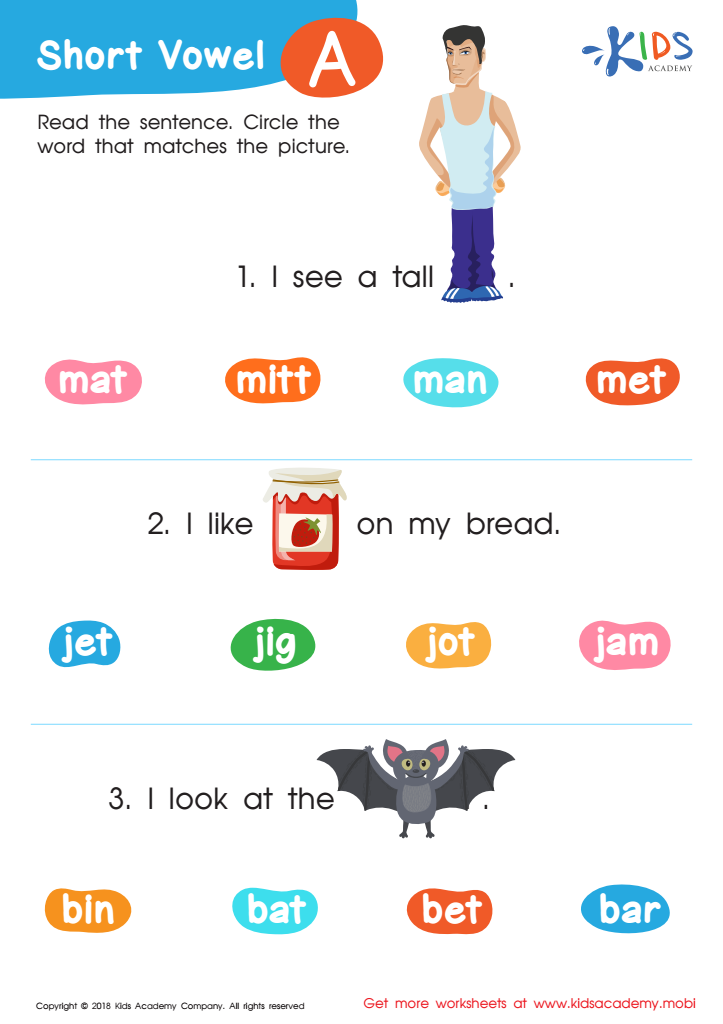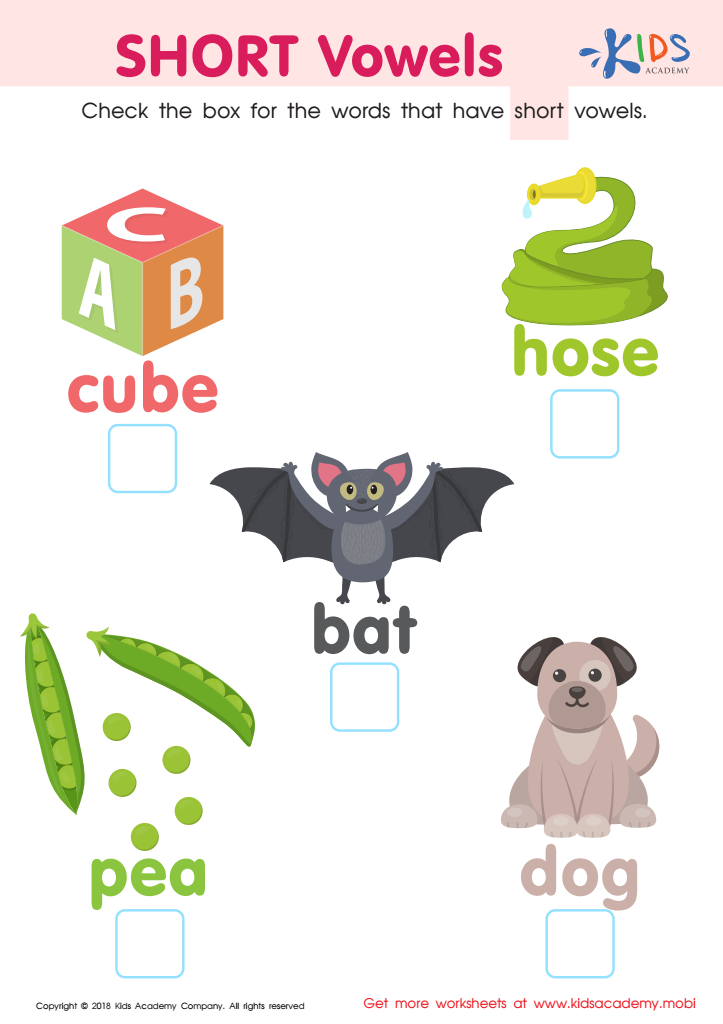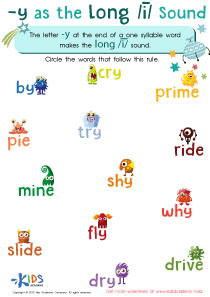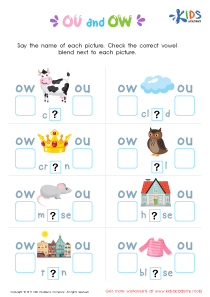Phonics practice Normal Short Vowels Worksheets for Ages 5-6
3 filtered results
-
From - To
Enhance your child's reading skills with our "Phonics Practice: Normal Short Vowels Worksheets" designed for ages 5-6. Our worksheets focus on key phonics concepts, helping young learners recognize, read, and pronounce short vowels accurately. Fun and engaging activities, like matching and filling in the blanks, make learning interactive and enjoyable. These worksheets are perfect for both classroom and home use, ensuring consistent practice to boost confidence and literacy skills in early readers. Start your child on the path to reading success with our expertly crafted phonics worksheets today! Visit Kids Academy to download and print.


Short Vowel /a/ Worksheet


short vowels Worksheet


Short Vowel Eggs Worksheet
Parents and teachers should prioritize phonics practice involving normal short vowels for children aged 5-6 because it forms the foundation of reading and writing skills. At this developmental stage, children are learning to decode words, which involves understanding and processing the relationship between letters and their corresponding sounds. Short vowels, such as the sounds for a, e, i, o, and u, are essential building blocks in this decoding process. Without this basic understanding, children may struggle with more complex reading tasks later on.
Phonics practice helps children improve their pronunciation, so they can read aloud confidently and correctly. Mastering short vowels enables children to differentiate between similar-sounding words, improving their listening comprehension. This skill is vital for both academic success and effective communication. By engaging in regular phonics practice, children develop essential auditory discrimination skills and letter-sound correspondence, making learning more complex literacy skills smoother and less frustrating.
Moreover, early success in phonics boosts children’s self-esteem and cultivates an interest in reading, creating lifelong learners. Therefore, consistent phonics practice in early education paves the way for academic achievement and fosters a love for reading and learning that benefits children well into adulthood.

 Assign to My Students
Assign to My Students















